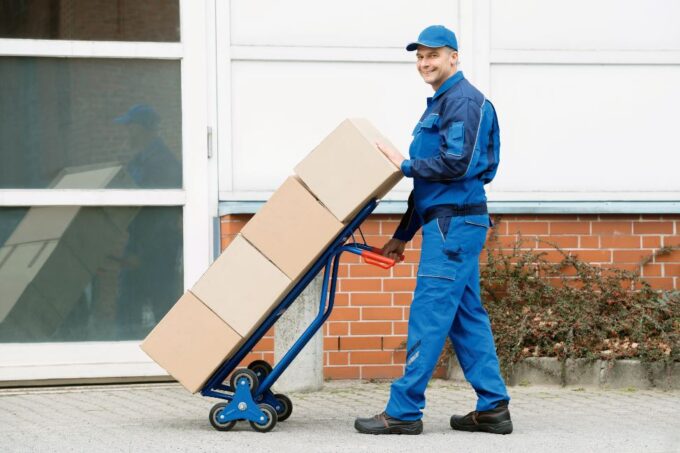Two billion Swiss francs: those who relieve themselves save money
Physical overload when lifting, carrying, pulling or pushing loads can lead to musculoskeletal complaints. Apart from physical suffering, this leads to lost working days and thus to high costs.

The corona pandemic resulted in a veritable flood of parcels. In times of the pandemic, when retail outlets were closed for long periods, online shopping obviously continued to gain in appeal. Swiss Post recorded an all-time record of over 180 million parcels delivered for the Corona year 2020. Whereby the deliveries of the various private parcel delivery services are not included here.
The joy of the recipient when receiving the package can lead to suffering for the supplier. After all, anyone who transports heavy loads incorrectly and without aids is harming their body.
"Physical overload can lead to tendonitis, signs of wear and tear such as osteoarthritis, or to back complaints. In extreme cases, these back complaints manifest themselves in the form of a slipped disc," explains Christian Müller, ergonomics expert at Suva.
Days lost cost a fortune
Apart from physical suffering, high costs are incurred because the injured employees are absent from work. Statistics show that 670,000 employees suffer from work-related musculoskeletal disorders and are absent from work for an average of three working days per year. Suva calculates that each day of absence costs around 1,000 Swiss francs, bringing the total cost to over 2 billion Swiss francs, which is a burden on the healthcare system, companies and the entire Swiss workplace.
The use of assistive devices enables the sustainable reduction of accidents, overloads and ultimately physical complaints. The benefits go beyond this, however, because assistive devices can also save time.
"A parcel delivery person who uses suitable aids at work protects his musculoskeletal system and saves a lot of energy. This enables him to maintain his work pace until the end of the day, even during a long working day," says Müller.
The aids are numerous and their use differs with regard to the object to be transported and the place of application. When transferring parcels, there are various tools that can facilitate the daily work. If the parcels are stacked on pallets when the deliveries are prepared, the use of a scissor lift enables the parcels to be lifted to waist height, which massively relieves the strain on the back. For particularly heavy packages, lifting aids such as vacuum lifters can be used. If delivery to the customer is possible via flat accesses, trolleys or sack trucks can be used. Stair climbers can help with stair access. In addition, a carrying strap can be useful for smaller packages.
In addition to the use of auxiliary equipment, it is important to design route planning and vehicle loading in such a way that each package is moved only minimally and optimally only during delivery itself. Here, too, time and forces can be saved.
Image gain thanks to professionalism
Last but not least, professional handling of loads also pays off for the company's image. After all, what customer is happy when he has to open the door to a sweaty and stressed parcel delivery person? A company that equips its employees professionally also exudes confidence in the customer that the ordered goods will arrive at the customer's premises without incident or transport damage.









